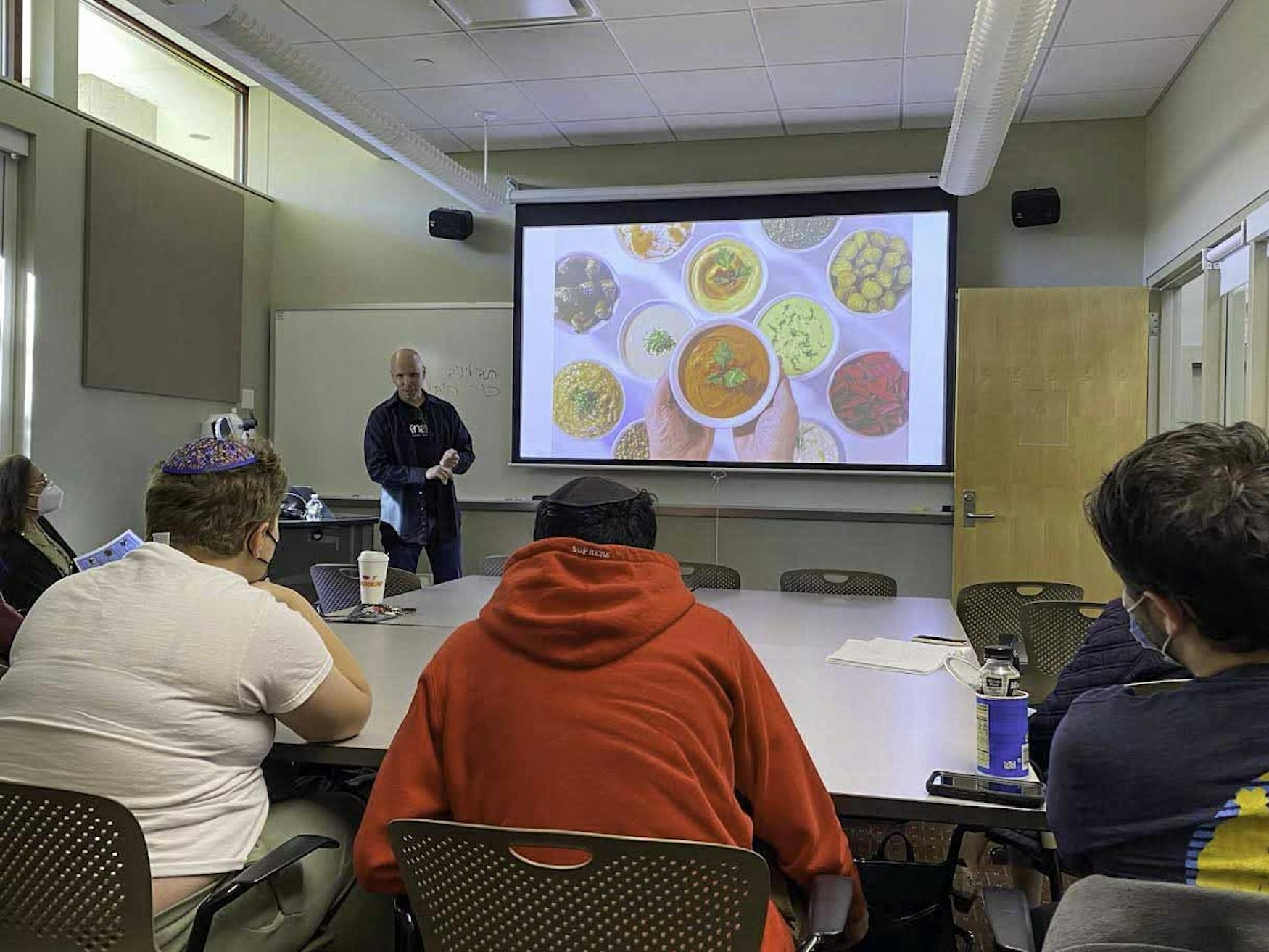Hebrew Program hosts Language and Arts festival
The Hebrew Language and Arts Festival featured a variety of Israeli speakers who showcased their work.
Brandeis hosted a melange of Hebrew-speaking professionals through the Hebrew Language and Arts Festival from Oct. 27 to Nov. 1. The Hebrew program and Near Eastern and Judaic Studies department host the annual festival, which includes events both in Hebrew and English to showcase new projects in film, music, food and writing. This year, events ranged from talks on fixed topics to interactive demonstrations.
The first event, held on Oct. 27 in the Abraham Shapiro Academic Complex, involved a discussion by writer and director Arnon Shorr ’05 on the process of adapting film to books. The event offered open explorations on both film and screenwriting in the context of Shorr’s work, which deals heavily with character-driven adventures.
Shorr graduated from Brandeis with degrees in film studies and philosophy and is now based in Los Angeles. Last summer, he spoke at a virtual Brandeis event on the story behind his short film, “The Pirate Captain Toledano.” Shorr has directed over 100 pieces which have been screened around the world, according to his website.
Following Shorr’s engagement, the festival continued with a talk by Iddo Gefen, an Israeli-born writer. Gefen is both a researcher and author. He studies neurocognitive functions at the Virtual and Augmented Reality Lab at the Sagol Brain Institute, with a focus on how storytelling and enhanced interactions through augmented reality can help further one's understanding of the human mind. His talk, titled “Why do our Brains Love Stories?”, was centered around the importance of sharing experiences with one another.
Gefen recently published “Jerusalem Beach,” a collection of stories on Israeli life, technology and the human condition. According to the synopsis available on the book's website, the snapshots in the book range from an elderly couple in search of a nonexistent beach to a boy mourning the loss of his brother and grappling with the fleeting nature of time.
Gefen’s talk, as well as the festival’s final event with Prof. Michal Ben-Josef Hirsch (POL), was partially conducted in Hebrew. In her talk “Politics and Conflict Narratives,” Hirsch brought her expertise in international relations and norms, ideas and historical justice into the context of the Israel and Palestine conflict.
For the demonstrative portions of the festival, Brandeis hosted Israeli performing artist Noa Barankin for “The Rhythm Connection,” an interactive drumming and music performance in English and Hebrew. Israeli culinary expert Ilan Barniv also appeared for the festival and facilitated two events on Israeli food and culture in the United States.




Please note All comments are eligible for publication in The Justice.